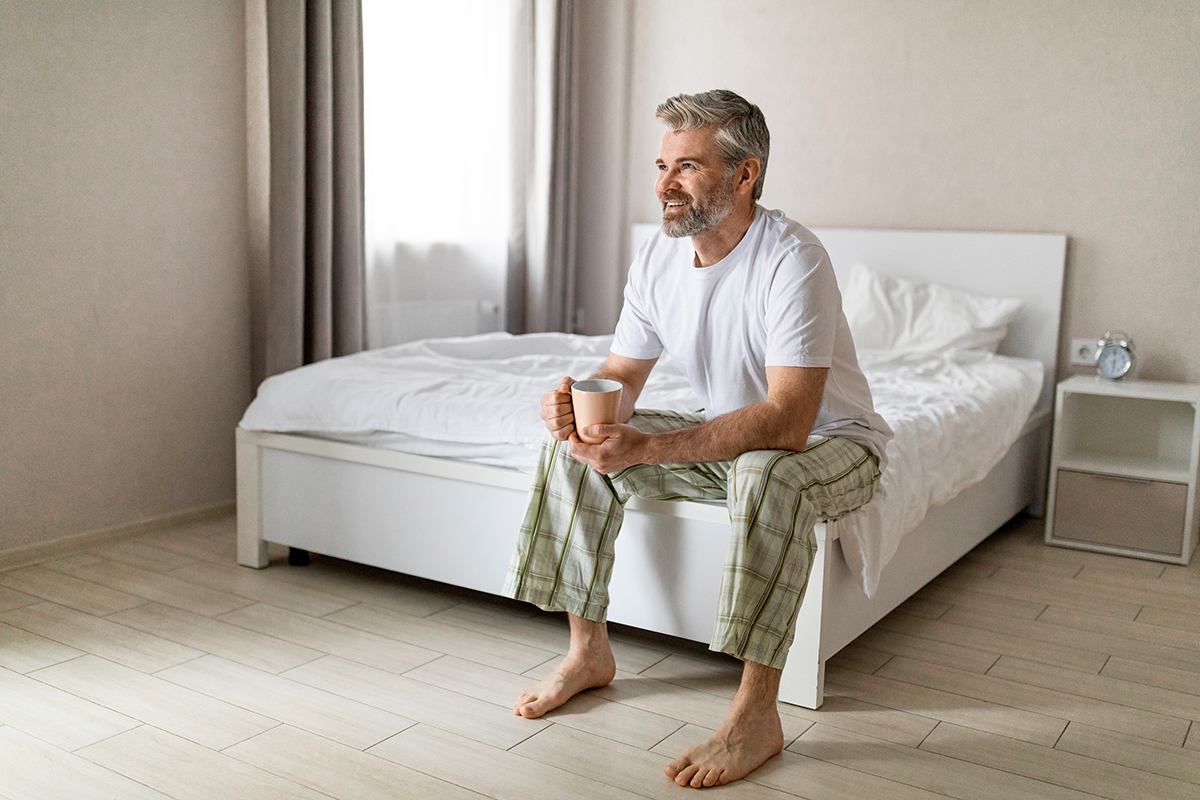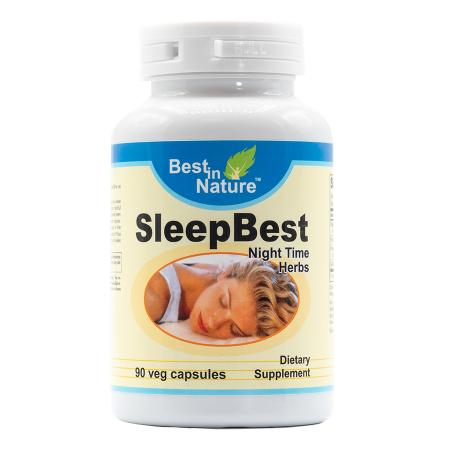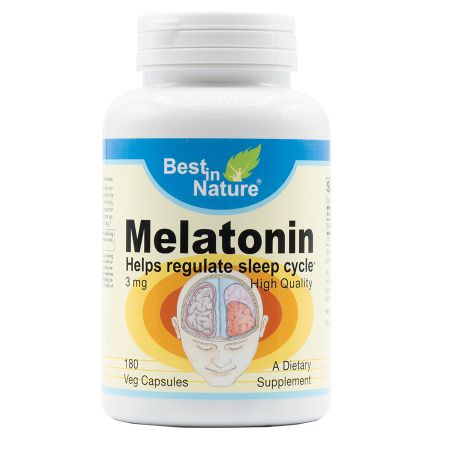
Sleep: We all do it and we all need it. But why? It’s such a natural urge that you may not have ever given much thought to what actually happens when you sleep. Well, one of the areas where it’s most important is memory and overall brain health. So let’s take a look at the brain-boosting benefits of sleep.
What is Sleep?
Sleep is a process that allows your body and brain to rest. It was commonly believed until recently that the body and brain were simply inactive during this time. But sleep is actually a complex, multi-stage process during which our body recovers from exercise and our brains perform a number of activities.
Because of this, sleep quality is just as important as sleep quantity.
For occasional restlessness, consider if SleepBest is right for you. It’s an all-natural blend of herbal extracts historically associated with restful sleep. Learn more here.
How Sleep Benefits the Brain
Sleep Helps with Memory Retention
One of the primary neurological benefits of sleep is that it helps you to solidify the memories you’ve formed throughout the day. Additionally, the brain creates links between these and previous memories. During this time, the brain decides which memories to store and which to forget, freeing up resources for the next day. This process of memory linking also helps with idea generation.
Conversely, sleep deprivation can interfere with the functioning of the hippocampus, the part of your brain that helps to process memories.
Sleep Boosts Creativity

The network of relationships between memories that the brain forms and the resulting boost in idea generation aids in creativity. This strengthens your ability to problem solve or be creative when needed in the most straight forward context.
Salvador Dali and Thomas Edison found inspiration from the state just before sleep called hypnagogia. Each of them would hold a small object that they would drop after dozing off slightly. The resulting noise would wake them and they’d get to work trying to hold onto the imagery from this transitional state.
Some artists have cited the ability to find creative inspiration in the period of coming out of sleep known as the hypnopompic state. In this state, our brain is usually loaded with the imagery from the dreams we have experienced during REM sleep.
Sleep Improves Your Mental Performance Throughout The Day

Sleep provides your brain time to catch up and prepare to pull up needed information and learn new information during your following waking hours.
In contrast, sleep deprivation interferes with your ability to recall details and take in new information because of its role in learning and memory. During your waking hours, your brain won’t have enough resources to properly sort out and store memories.
[READ: How to Improve Memory and Concentration]
Sufficient Sleep Can Increase Your Motivation

A lack of sleep provides numerous challenges during the day including slower reaction times, brain fog, and irritability. While any single one of these might not be that tall of a hurdle, all of them along with decreased energy will result in lower motivation and productivity.
On the other hand, being well-rested will help you tackle your to-do list with greater ease.
Sleep Can Put You in a Good Mood
Can a bad night of sleep put you in a nasty mood? Quite so. Sleep’s contribution to mood health cannot be overstated.
Chronic lack of sleep is also a risk factor for developing mood disorders such as depression and bipolar disorder. In one major study of 10,000 adults, people with insomnia were five times more likely to develop depression.
Sleep Helps Your Brain Clear Out Harmful Toxins
When we talk about sleep and recovery, you would automatically think about exercise recovery. But sleep is also a time in which brain cells can recover and clear out toxins that build up throughout the day.
At this time, scientists still don’t have a full explanation for how the entire process works and why it is so enhanced by sleep. The theory is that cerebrospinal fluid (CSF) may flush toxic waste out, “cleaning” the brain, with studies showing that this detoxification is hugely improved during sleep. The toxins the brain clears out during this time are ones associated with neurodegenerative diseases like Alzheimer’s and Parkinson’s.
[READ: How to Fix Your Sleep Schedule]
Sleeping May Help Prevent Neurodegenerative Disorders
Following from the last point, there should be a correlation between chronic sleep deprivation over one’s lifetime and these neurodegenerative conditions right? Well, the correlation, at least, is there.
Scientists have started to draw a link between longer waking time with an increased risk of cognitive impairment and a higher risk of developing Alzheimer's disease (AD). Studies suggest that greater brain activity from longer durations without sleep leads to more deposition of beta-amyloid, the primary protein associated with Alzheimer’s, in the brain. Recent neuroimaging studies seem to support this.
Sleep FAQs
How Much Sleep Is Enough?
Sleep and health is all about the long game. The occasional bad night of sleep won’t be too damaging to one’s health but chronic sleep deprivation is the real culprit to look out for.
Generally, adults are recommended to get 7 to 8 hours of sleep per night while teenagers and older adults differ slightly in their needs. More precise sleep recommendations from CDC.
How Do You Know You’re Getting Enough?
Most of the time, if you’re able to stay awake and alert throughout your daily activities, you’re getting enough sleep. However, poor sleep quality can still leave you feeling tired or sleepy even after getting enough sleep.
Tips for Getting a Good Night’s Sleep
- Maintain a cool sleep environment: your body temperature drops as you fall asleep. A cool environment (60-67 degrees Fahrenheit) may help ease the transition to sleep.
- Wind down mentally: Since stress, anxiety, and depression can keep you up, try to practice activities that relieve them such as yoga, journaling, deep breathing, meditation, or listening to relaxing music.
- Exercise daily and early: Exercising at the right times can help to align the circadian rhythm. Additionally, exercise can stimulate the production of melatonin, an important hormone for healthy sleep.
- Sleep and wake at the same time daily: Sleep is all about consistency. Maintaining a consistent sleep and wake time will make getting enough quality sleep much easier.
- Supplements: Melatonin and other herbal remedies may provide a helping hand for short-term sleep disruptions. Melatonin is a hormone that is naturally produced in the body when darkness falls. Supplementing could aid in correcting your body’s sleep schedule. In addition to melatonin, several supplements have a history of being used as sleep remedies like valerian or ashwagandha.
Bottom Line
Sleep is an important biological process that has a number of brain-boosting benefits including helping you maintain a better mood, helping you stay motivated, and increasing your creativity among others. Most adults could use about 7 to 8 hours per night.
This article is provided for informational purposes only and is not intended to be used as medical advice. If you have immediate concerns about your health, please seek the help of your physician.
*These statements have not been evaluated by the Food and Drug Administration. This product is not intended to diagnose, treat, cure or prevent disease.
© 2023 Best in Nature All rights reserved






Validate your login
Sign In
Create New Account